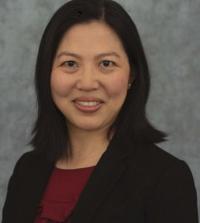
Research in the humanities makes a unique contribution to how we understand what it means to be human in the world, particularly when it documents the lives and stories of people who might otherwise be lost to history.
The University of California Humanities Research Institute (UCHRI) has recently funded two projects led by faculty in the UC Davis College of Letters and Science that document the lives of marginalized people, both in the past and present. The projects are funded by the Engaging Humanities Grant, 2024–25, which supports UC faculty with up to $20,000 over two years to engage with diverse communities outside the university.
“California’s communities represent a rich resource for UC faculty interested in pursuing collaborative, public-facing projects that will impact people beyond their campuses,” according to UCHRI.
Both projects are also funded by grants from the UC Davis Public Impact Research Initiative.
Connecting agricultural communities in California and Mississippi

Erica Kohl-Arenas, associate professor in American Studies and the faculty director of Imagining America: Artists and Scholars in Public Life, is a scholar of social movements, freedom struggles, and the politics of institutionalization, professionalization and private philanthropy.
Kohl-Arenas and her longtime research partner, Myrna Martinez-Nateras of the Pan Valley Institute in Fresno, have been working with cultural leaders in farm-worker communities in California’s Central Valley for more than 25 years. For the last five of those years, they’ve collaborated with cultural leaders and researchers in the Mississippi Delta and found that, despite the 2,000-mile distance between the communities, there are similarities between the two agricultural regions and the grassroots movements for agricultural and food justice.
One stark similarity is the relationship between wealth, industry and food insecurity. Today, both regions are experiencing a resurgence of cooperative farming and agricultural justice efforts led by Black and brown farmers and culture-keepers who carry on their own more-equitable, caring forms of food production and culture.
For their project, “Agri-Cultural Justice from California’s Central Valley to the Mississippi Delta,” Kohl-Arenas and Martinez-Nateras plan to facilitate a cultural exchange with the Mississippi Center for Cultural Production and host an Interactive Workshop at the 2025 Imagining America National Gathering.
“Joining together a region of industrial abandonment (the Delta) and hyper industrialization (the Valley), this research will make a significant contribution to conversations about grassroots agri-cultural movements that have arisen to combat patterns of industrial abandonment and harm in the United States by creating more caring, equal, and thriving futures for all,” Kohl-Arenas writes.
Bringing history to light

Associate Professor Cecilia Tsu is a U.S. historian with research and teaching interests in Asian American history, race and ethnicity, immigration, California and the American West. For the UCHRI project “Uncovering Diverse Histories of Yolo County,” Tsu is collaborating with academic researchers, county archivists and K-12 educators to document and share the local histories of underrepresented groups in Yolo County.
Yolo County, home to UC Davis, carries a deep and diverse history. The first African American resident arrived in 1854 as an enslaved person. During World War II, Yolo County had the largest number of Mexican braceros in the state at a time when the U.S. was uprooting and incarcerating local Japanese American farm families. Three Patwin tribes consider Yolo County their traditional lands, dating back thousands of years.
This summer, Tsu and a team of undergraduate and graduate students have been conducting research in the Yolo County Archives’ extensive collections, which include property records, court cases, census records, coroner’s inquest files, newspapers and photographs. They have documented the presence of a thriving community of Chinese immigrants living and working in “China Alley” during the late nineteenth century in what is now downtown Woodland.
The team has also been examining the history of African Americans who arrived in Yolo County after the Civil War, in some cases reuniting with family members who had been brought to the area enslaved during Gold Rush era in the 1850s. These newly emancipated individuals sought to establish economic independence and stability in rural California.
In the next stage of the project, the research team will work with curriculum experts and teacher leaders to develop educational resources for local elementary and secondary school classrooms based on the archival research.
“Although communities have long inhabited the county, there is scant historical research or broad public awareness about their histories,” Tsu writes. “This collaboration will ultimately bring those stories to K-12 students in our community to help address and repair the ongoing erasure of marginalized histories.”
